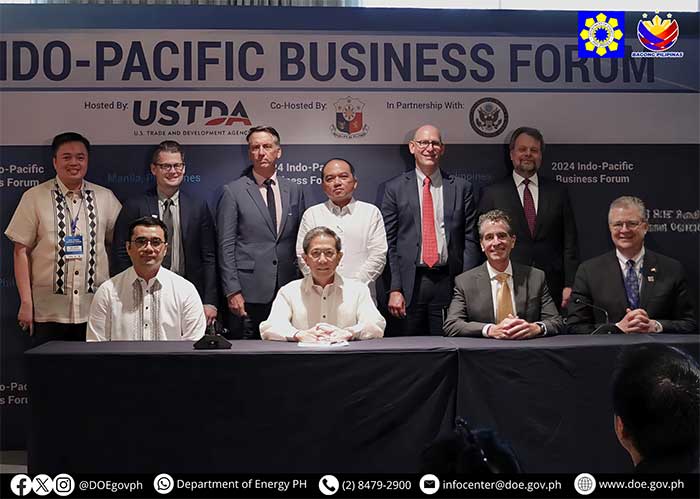
By Francis Allan L. Angelo
On the sidelines of the recent Indo-Pacific Business Forum, the Department of Energy (DOE) signed two Memoranda of Understanding (MOUs) to boost capacity building and workforce development in the Philippine energy sector.
The first MOU, signed with the Philippine-American Educational Foundation (PAEF), also known as the Fulbright Commission in the Philippines, aims to create scholarships and human resource development programs for the energy sector.
The collaboration will involve engaging U.S. experts to provide professional consultations, lectures, training, and research to the DOE, as well as to endorsed universities and institutions in the Philippines.
Additionally, the MOU offers opportunities for Filipinos to pursue advanced research, training programs, and other educational exchanges in the United States.
The second MOU, signed with the United States Agency for International Development (USAID), builds on the existing partnership between the two countries.
Through the Energy Secure Philippines (ESP) activity, USAID will provide development assistance to improve energy utility performance, increase the deployment of advanced energy sources, enhance competition, ensure resilient energy infrastructure, and secure supply reliability.
Furthermore, USAID will support the DOE in leading the country’s clean energy transition, implementing the Civil Nuclear Cooperation Agreement, and developing a Smart and Green Grid Plan.
Energy Secretary Raphael P.M. Lotilla highlighted the significance of these collaborations.
“This partnership offers advanced training for the clean energy sector and opportunities for civil nuclear cooperation,” Lotilla said.
Assistant Secretary of State for East Asian and Pacific Affairs Daniel Kritenbrink reiterated the U.S. commitment to developing skilled professionals, institutionalizing robust policies, and fostering lasting commercial partnerships.
The DOE is committed to a sustainable energy program, aiming to achieve a minimum 35 percent share of renewable energy in the power generation mix by 2030 and 50 percent by 2040.
The government is also exploring low-carbon alternatives, such as nuclear energy, and the feasibility of integrating energy storage systems and other emerging technologies.
















